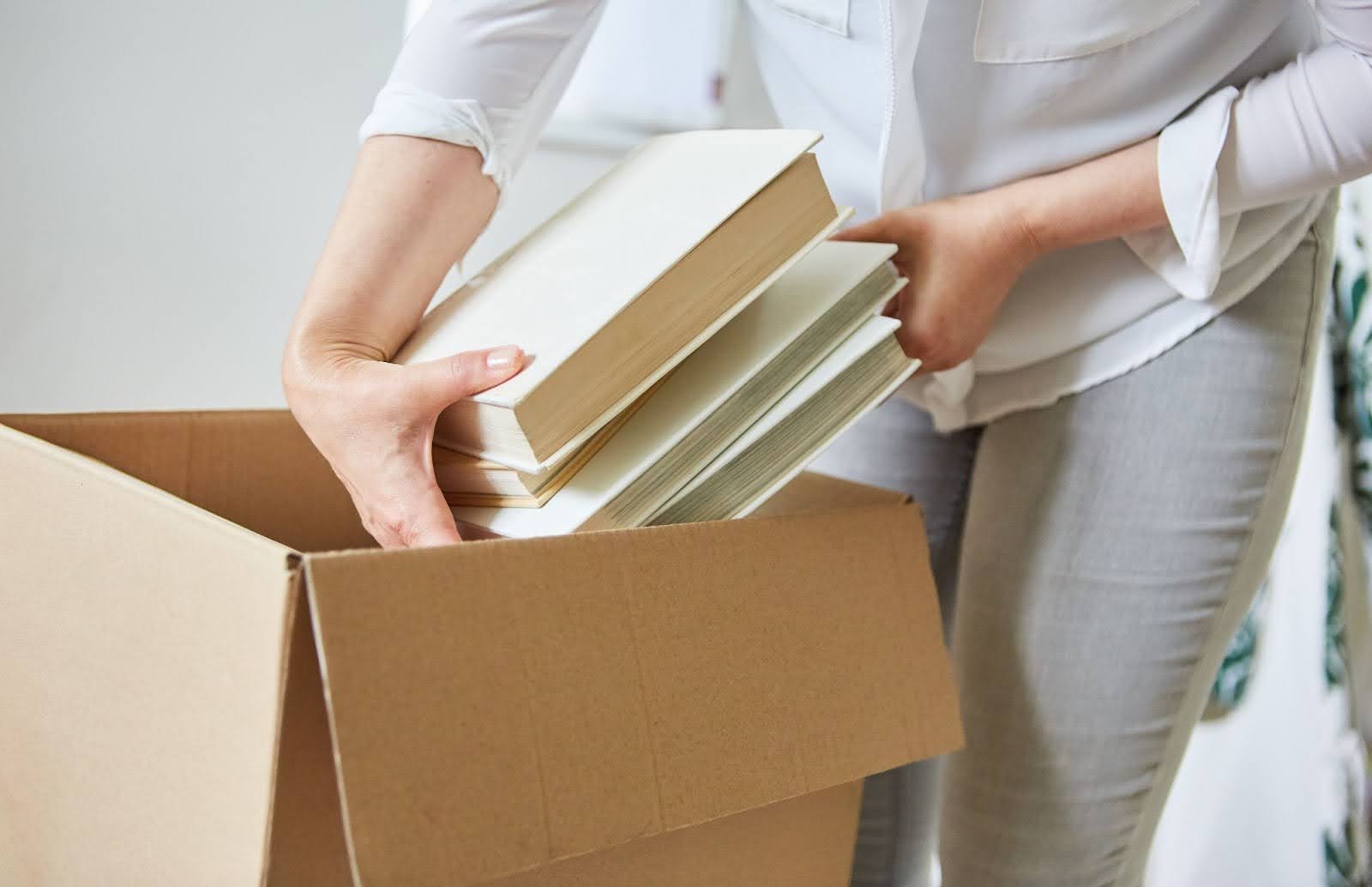March 29, 2024

Books offer an escape from reality, and they can transport us to different places and times. Nothing ever really matches the experience of reading physical books, but you may already have too many books at home and have no more space on your shelves for new ones.
Storing books in a storage unit can help keep your books safe and give you all the space you need at home for new books. But, when storing books long-term, you should also make sure to store them properly. Here’s a guide for bookworms.
Clean Your Books Thoroughly
Before you store your books, make sure they are clean first. You may have left your books alone on your bookshelves for a long time, so there might be dust on their covers already. Get a microfiber cloth and wipe down the cover to remove dust and dirt. Don’t use wet wipes or any liquid cleaning products, as moisture can cause mildew to grow on your books during storage.
You can also use a soft brush to dust your book’s cover and internal pages. Check pages for dust or dirt. Additionally, you should also check if there are crumbs or food residue on the pages and make sure to get rid of them.
Wrap All Your Books
You can’t just put your books directly inside boxes or plastic storage bins. You should give them extra protection when they are stored long-term. After cleaning your books, you can begin wrapping them for storage. Wrap your books with acid-free archival paper or cloth. This will help protect your precious books from damage caused by dirt or dust.
Remember that you should provide protection for dust jackets as well. The wrapping of books does not just apply to paperback books. Many hardcover books are wrapped in dust jackets, and these dust jackets can be easily torn. So, make sure to provide extra protection for all your books.
When wrapping books, make sure to avoid using plastic bags or foil because these materials trap moisture and can lead to mold and mildew growth. You should also avoid materials that can transfer ink, such as newspapers.
Store Your Books in Cardboard Boxes or Plastic Bins

After wrapping your books, you can now store them in cardboard boxes or plastic bins. Using cardboard boxes is very common as they are cheaper than plastic bins, although the latter has its advantages too.
Using Cardboard Boxes for Your Books
Use strong, quality cardboard boxes for your books. And just like with your books, your boxes have to be clean too. Boxes with dirt and traces of food can attract pests, so make sure to clean your boxes first before you start putting your books inside.
Cardboard boxes do not trap moisture and can keep your books dry and protected for long-term storage. They are also less expensive compared to plastic bins.
Using Plastic Bins for Your Books
Plastic bins can be costly, but they do have numerous advantages. They are durable and they will definitely keep your books safe from dust and bugs. You just have to be careful when using plastic bins because plastic containers are prone to trapping moisture.
So, make sure that your books are completely dry before putting them inside a plastic container to avoid mold or mildew. Also, put silica gel packets to absorb moisture.
Use Small Boxes or Plastic Bins
Do not make the mistake of packing books into large cardboard boxes or plastic bins. This will make the boxes or plastic containers very heavy and difficult to move. Additionally, the weight of your books can break through your box. So, choose small boxes for storing your books. It’s better to have numerous small boxes than one big, heavy box.
The same can be said for plastic bins. Avoid buying large plastic bins and choose smaller plastic containers. They will be easier to carry and transport. By using small boxes or plastic bins, you can also avoid back injuries caused by lifting large, heavy things.
Do Not Over or Under-Pack Boxes
If you are using cardboard boxes to store your books, make sure not to put too many books inside. While it may be tempting to try to fit as many books as you can in one box, not enough space between your books can lead to bending or warping.
On the other hand, empty space in your boxes can make your books move around, which can then lead to damage. Just pack books tight enough so that they don’t shift or get damaged.
6. Organizing Your Books for Storage: Categorize
It is better to group your books into categories. For instance, group according to genre: all fantasy books go in one box, and all romance novels go in another. There’s nothing really wrong with putting your Harry Potter collection in the same box with Nicholas Sparks books, but it’s better to categorize so that later on, when you want to look for a specific title, it will be easier to find.
Additionally, you can also organize your books alphabetically by title or author. Or, group them according to the topic (for instance, communication books or science books).
Do Not Forget to Label
It’s important to label boxes or plastic bins so that you know what books are inside. This will also make things easier for you later on when you want to get some books back. If you group your books by genre, you can mark boxes as “fantasy books” or “sci-fi books”. If you want to be more specific and detailed, you can print out a list of all the book titles inside and then stick that list on the box or plastic container.
Arrange Your Books Carefully
Books can either be laid flat or stored upright. Small and medium-sized books will be safe either way, but just remember that if your books are stored upright, you shouldn’t stack anything else on top of them. Large and heavy books, however, should be laid flat. Always remember that lighter books should always be on the top, while heavier books should be placed on the bottom.
Avoid the Floor: Keep Boxes or Plastic Bins Off the Floor
Your books will be even safer if you do not put boxes or plastic bins directly on the floor. They will have added protection if you use shelving units or pallets. Just aim to keep the boxes or bins off the floor.
Choose a Climate-Controlled Storage Unit
Anything that’s made of paper, such as books, is among the items that require climate-controlled storage. They are sensitive to temperature and humidity fluctuations, and that’s why they should be placed in an environment that has regulated temperature and humidity. Climate-controlled storage units are designed to meet certain temperature and humidity levels. Your books will surely be safe in such units.
Interested in renting a climate-controlled storage unit? Contact us today!
